Key highlights
- Understand the advantages of using dedicated servers with SSD to boost website speed, reliability and full control over server resources.
- Learn how SSD and NVMe SSD technologies improve hosting performance, reduce latency and support high-demand applications.
- Explore the key features of SSD hosting that directly impact SEO, user experience, uptime and data integrity.
- Compare SSD with HDD and assess performance benchmarks, energy efficiency and long-term maintenance costs for better decision-making.
- Know how to evaluate and choose the right SSD dedicated hosting provider based on your workload, budget and technical requirements.
If your website loads slowly or crashes under pressure, users won’t wait—they’ll leave.
That’s why businesses outgrowing shared hosting or VPS plans often ask the same question: Is it time for a dedicated server with SSD?
Choosing the right server setup affects more than just performance—it impacts SEO rankings, user experience, uptime and growth potential. This guide explains everything you need to know about dedicated servers with SSD. Learn how they work, why they’re faster and when to choose standard SSD or NVMe SSD hosting.
TL; DR – Why SSD dedicated hosting matters?
- SSD = Faster websites: SSDs and NVMe SSDs load data 5–6x faster than HDDs.
- Boosts SEO & UX: Search engines reward fast-loading websites.
- More reliable: SSDs are shock-resistant and energy efficient.
- Who should choose? eCommerce, agencies, SaaS providers and data-heavy platforms.
- Best pick: Bluehost – NVMe SSD hosting with AMD EPYC CPUs, 24/7 support and scalable infrastructure.
What is a dedicated server with SSD?
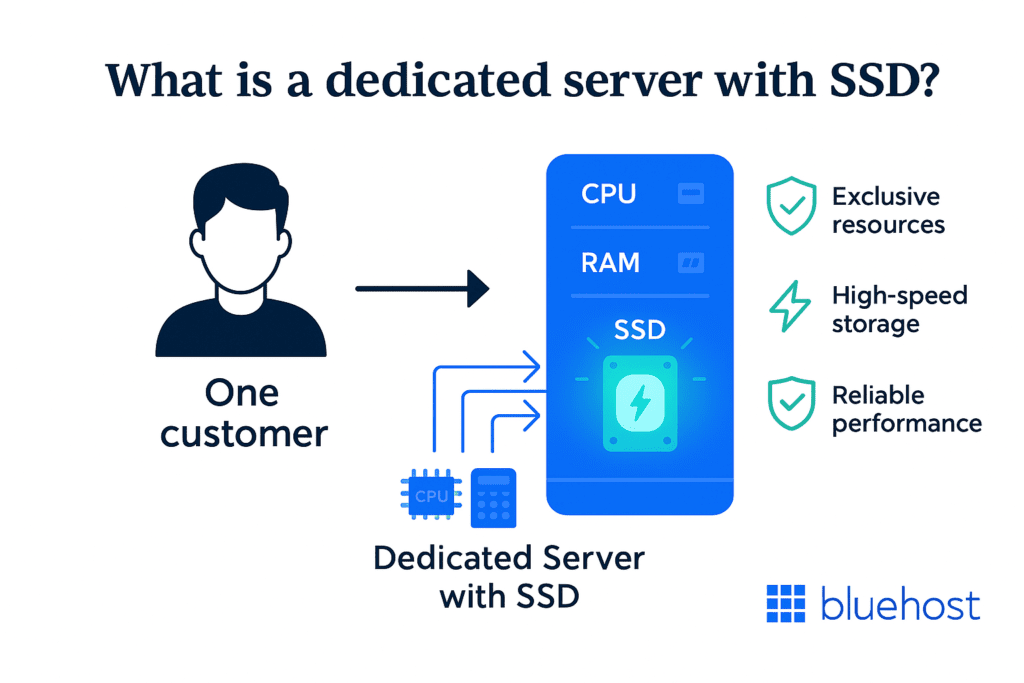
A dedicated server with solid-state drives (SSD) is a physical server that’s exclusively allocated to one customer and equipped with SSD for fast, reliable storage. Unlike shared hosting or a virtual private server (VPS), you don’t split resources with other users. You get dedicated resources—like RAM, CPU and disk space—giving you full control over your server environment.
SSDs use flash-based memory instead of spinning disks, which means they deliver fast storage and high performance. That speed translates to quicker data access, faster load times and better reliability for your web applications or websites.
Understanding dedicated server architecture
A dedicated server gives you exclusive access to all hardware resources—unlike shared or VPS hosting, where resources are split among multiple users. With dedicated architecture, you get full control over the server, its operating system and installed software.
Key components of dedicated server architecture include:
- CPU: Handles processing power for applications and tasks
- RAM: Supports multitasking and faster execution
- SSD or NVMe SSD: Offers fast storage, reduced latency and improved reliability
- Bandwidth: Controls how much traffic your server can handle
- Root access: Gives administrators complete command over the system
How does SSD technology improves hosting?
SSD technology significantly enhances hosting performance by reducing data access times, improving stability and lowering failure risks. When your dedicated server uses SSDs or NVMe SSD hosting, you’re getting fast storage with no moving parts—unlike traditional hard drives.
This results in:
- Faster data retrieval for your websites, applications and databases
- Lower latency, meaning quicker response times for users
- Improved uptime, thanks to the durability and reliability of SSD hardware
- Reduced carbon footprint, as SSDs consume less energy than spinning drives
Difference between SSD and NVMe SSD hosting
When comparing SSD and NVMe SSD hosting, the main differences come down to speed, data transfer method and connection interface. Here’s a quick comparison table:
| Feature | Standard SSD hosting | NVMe SSD hosting |
| Interface | SATA (Serial ATA) | PCIe (Peripheral Component Interconnect Express) |
| Speed | Fast | Ultra-fast (up to 6x faster than SATA SSDs) |
| Latency | Lower than HDD | Extremely low (ideal for real-time applications) |
| Bandwidth | Limited by SATA | High-speed, multi-lane data transfer |
| Performance | Excellent for most use cases | Best for resource-heavy or enterprise workloads |
| Protocol | AHCI (Older) | NVMe (Modern, optimized for SSDs) |
| Ideal for | General websites, blogs, small apps | eCommerce, SaaS, large databases, high IOPS needs |
| Cost | More affordable | Higher price point but justified by speed gains |
Both standard SSD hosting and NVMe SSD hosting use solid-state technology, but NVMe delivers faster speeds, lower latency and greater throughput by leveraging the PCIe interface and non-volatile memory express protocol. It’s perfect for businesses that need maximum performance, especially those running VPS servers, web applications or dedicated servers with SSD for demanding environments.
What are the key features of SSD in dedicated server hosting?
Using dedicated servers with SSD offers powerful benefits that directly impact performance, reliability and the overall hosting experience. Here are the most important features SSDs bring to server hosting:
1. Faster read/write speeds for websites and databases
SSDs significantly boost site speed and database performance. Whether you’re running WordPress, managing content-heavy web applications or operating a VPS platform, faster data access ensures smoother user experiences and quicker load times.
2. Improved uptime and lower latency
SSDs significantly boost site speed and database performance. Whether you’re running WordPress, managing content-heavy web applications or operating a VPS platform, faster data access ensures smoother user experiences and quicker load times.
3. Better SEO and user experience with fast storage
Google favors fast-loading websites. SSD-backed dedicated servers help improve SEO rankings and keep users engaged longer, directly impacting conversions, engagement and sales.
4. Increased reliability and data integrity
SSD storage offers better resistance to physical shock, lowering the risk of data loss. Your business-critical services stay safe and responsive, even under heavy traffic or complex workloads.
What are the advantages and disadvantages of dedicated server hosting?
A dedicated server offers unmatched control and performance, but it’s important to weigh both the pros and cons before making the investment.
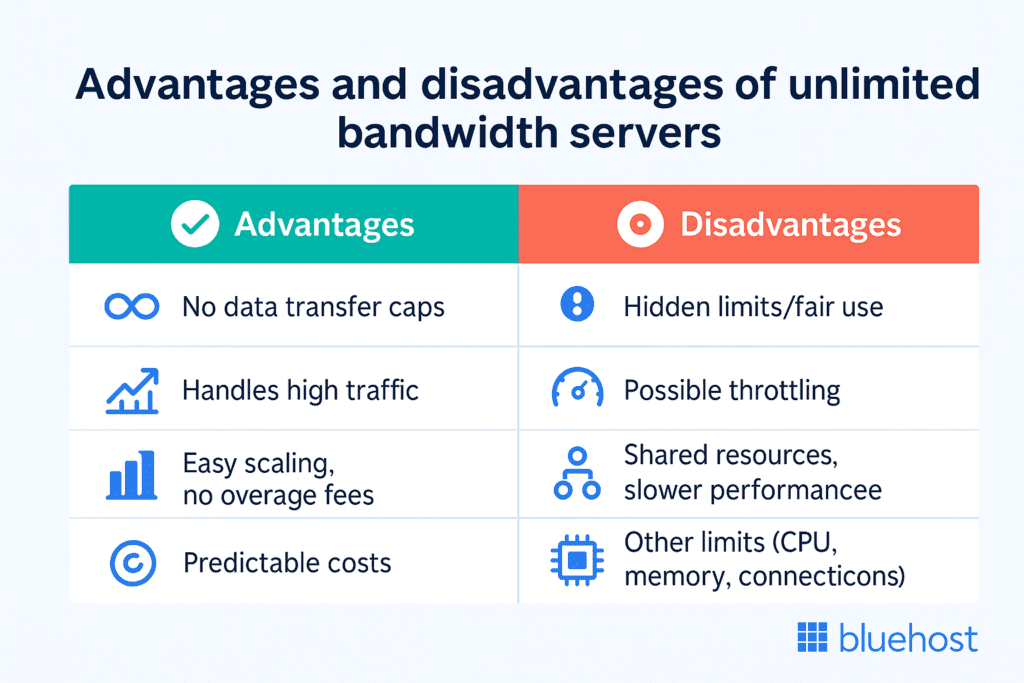
Advantages of dedicated server hosting
- Dedicated resources: You get full access to RAM, CPU and server space without sharing them with other users.
- Full control: Enjoy root access and choose your operating system, software and configuration with ease.
- Maximum performance: Ideal for web hosting large-scale web applications, eCommerce platforms or virtual servers.
- Enhanced security: Isolated environments reduce the risk of breaches and data loss, perfect for sensitive business operations.
- Scalability: Easily upgrade your server to match growing needs, including more bandwidth, storage or computing power.
Disadvantages of dedicated server hosting
- Higher cost: More expensive than shared hosting or affordable VPS plans, especially for small businesses.
- Requires technical skills: Managing your own server hosting demands experience with server configurations and security protocols.
- Manual maintenance: Without a managed plan, you’re responsible for updates, backups and infrastructure health.
- Billing cycle lock-ins: Some hosting providers limit flexibility by requiring long-term plans or specific billing cycles.
- No shared cost savings: All operational costs fall on a single customer, unlike shared or VPS hosting environments.
SSD vs. HDD in dedicated servers: Which one offers better performance?
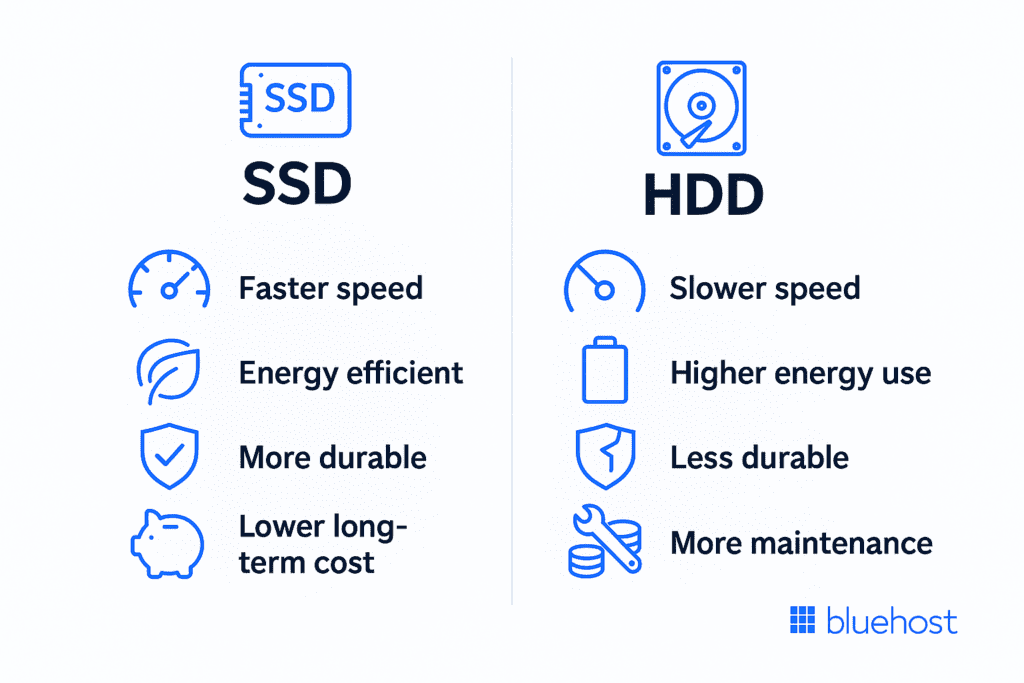
Choosing between SSD and HDD storage in dedicated server hosting comes down to performance, reliability and long-term value. Here’s how they compare across the most critical factors.
1. Speed and performance benchmarks
Dedicated servers with SSD provide significantly faster read/write speeds than HDDs. SSDs retrieve and store data almost instantly—ideal for web applications, databases and WordPress sites requiring high IOPS.
By contrast, HDDs rely on spinning disks and mechanical arms, resulting in longer data access times and higher latency. This can slow down site speed and impact user experience, especially under heavy traffic.
Also read: 5 Ways To Fix Your Website Speed
2. Energy efficiency and durability
SSDs are more energy-efficient, which helps reduce your carbon footprint. With no moving parts, they consume less power and generate less heat, making them ideal for data centers aiming for greener operations.
They’re also more durable. SSDs handle physical stress better, which improves uptime and reduces the risk of data loss. In contrast, HDDs are more vulnerable to wear and tear, especially in environments with high server demands.
This makes SSDs a better choice for storage servers that require reliability, uptime and minimal disruption.
3. Long-term cost and maintenance differences
While SSDs typically cost more upfront, they offer savings over time through:
- Lower maintenance needs
- Fewer hardware replacements
- Reduced downtime and performance bottlenecks
- Better scalability for growing traffic and data demands
HDDs may offer more disk space at a lower cost, but their slower speeds can affect SEO rankings, conversions and overall performance, leading to missed opportunities.
For businesses focused on long-term growth, customer satisfaction and better SEO rankings, the best pricing comes from investing in fast storage dedicated servers that deliver.
Also read: When Should I Invest in a Dedicated Web Hosting Server?
Who should consider a dedicated server with SSD?
A dedicated server with SSD is ideal for businesses and professionals who need consistent performance, fast storage and maximum uptime. Here’s who benefits most from SSD server hosting:
1. eCommerce websites with high traffic
Online stores handling frequent transactions, large product catalogs or seasonal spikes need dedicated resources to maintain site speed and avoid downtime. SSDs ensure smooth checkouts, fast page loads and better SEO rankings—key for sales team performance.
2. Resource-heavy applications or enterprise platforms
Running custom web applications, CRMs or internal platforms? SSDs reduce latency and support faster data processing. With non-volatile memory express (NVMe) and full control over the server, enterprises can scale seamlessly while protecting critical data.
3. Agencies, developers and SaaS providers
If you’re managing several servers or client websites, a dedicated server with SSD allows for greater flexibility, improved uptime and lower data loss risks. You can configure a private VPS platform, allocate CPU and RAM precisely and deploy updates in just a few clicks.
4. Businesses needing NVMe SSD hosting for maximum throughput
If your applications demand high-speed access to large datasets, such as in video streaming, AI workloads or real-time analytics, NVMe SSD hosting is ideal.
It offers unmatched I/O performance, enabling faster data transfer and minimal delays, even during intensive tasks. With direct connection to the motherboard, NVMe enables ultra-fast access with minimal delays.
Also read: Benefits of Dedicated Server Hosting for Business
Who are the best SSD server hosting providers in 2026?
If you’re looking for a dedicated server with SSD, there’s no shortage of options in 2026. But not every provider offers the same level of performance, storage flexibility or great services. Below are the top hosting providers in 2026 offering strong SSD server hosting options, including NVMe SSD hosting for higher throughput.
| Hosting provider | Key features | Best for | User rating |
| Bluehost | NVMe SSD storage, root access, unmetered bandwidth, 24/7 support, AMD EPYC CPUs | Growing businesses and high-performance websites | 4.7/5 |
| A2 Hosting | Offers turbo servers powered by SSD storage, full control and developer-friendly tools for high-speed deployments. | Developers needing flexibility and fast deployment | 4.5/5 |
| HostGator | Optional SSDs, unmetered bandwidth, cPanel, DDoS protection, Linux/Windows | SMBs upgrading from shared to dedicated hosting | 4.3/5 |
| Liquid Web | Fully managed, SSD storage, SLA uptime, proactive support, Heroic team | Enterprises needing strong uptime and expert support | 4.6/5 |
| Ultahost | NVMe SSDs, free daily backups, refund policy, firewall, SSL, Linux/Windows | Startups needing speed on a budget | 4.4/5 |
| InMotion Hosting | SSD RAID configs, NVMe upgrade option, real-time monitoring, free tools | SMBs needing managed servers with flexibility | 4.4/5 |
| Ionos | SSDs, full root, scalable RAM/storage, API access, global servers | Developers wanting control with predictable pricing | 4.2/5 |
| Kamatera | Instant provisioning, per-minute billing, SSDs, full custom plans | Tech teams building dynamic or distributed environments | 4.3/5 |
Here’s a closer look at some of the top-rated names in the industry:
Bluehost
Bluehost, a reliable hosting provider with over two decades of experience, has consistently ranked among the top choices for users seeking dependable, high-performance infrastructure.
We’re one of the most recognized names in web hosting and we’re trusted by over 5 million WordPress users. As a platform officially recommended by WordPress.org, we’ve built our infrastructure to support sites of all sizes—from simple blogs to enterprise-grade deployments.
For users looking into dedicated servers with SSD, we offer a modern hosting environment backed by the latest hardware. Bluehost dedicated hosting plans powered by Dell rack mount servers.
Starting price: $141.19/month (Standard NVMe 32 – 36-month term)*
* Note: Pricing listed above reflects rates as of June 2025. For the most accurate and up-to-date pricing, please check the official Bluehost dedicated hosting pricing page.
Key features:
- NVMe SSD storage with Dell-powered infrastructure
- AMD EPYC CPUs, DDR5 RAM and root access
- Free site migration and streamlined control panel
- 24/7 expert support and built-in security tools
Pros:
- Blazing-fast NVMe SSD performance
- Full root access with 3 dedicated IPs
- Free migration and intuitive control panel
Cons:
- No Windows OS support
- Discounts require longer-term commitments
Best for:
Businesses needing fast, scalable SSD servers with minimal complexity and excellent support.
Hosting.com

A2 Hosting, now called as Hosting.com, known for its speed-first approach and developer-friendly features. Their dedicated server hosting includes NVMe SSD storage, full root access and optional Turbo Servers optimized for faster load times.
Starting price: $155/month (managed plans with NVMe SSD)
Key features:
- NVMe SSDs for high-speed performance
- Managed and unmanaged server options
- Choice of cPanel or Webuzo for server management
- Global data center locations
- Uptime and security features built for demanding workloads
Pros:
- Great speed with Turbo Server tech
- Customizable server environments
- Choice of control panels
Cons:
- Slightly higher entry pricing
- Advanced features may overwhelm beginners
Best for:
A2 is a good fit for users who want customization and control, especially for running web applications or building out VPS-style environments.
HostGator
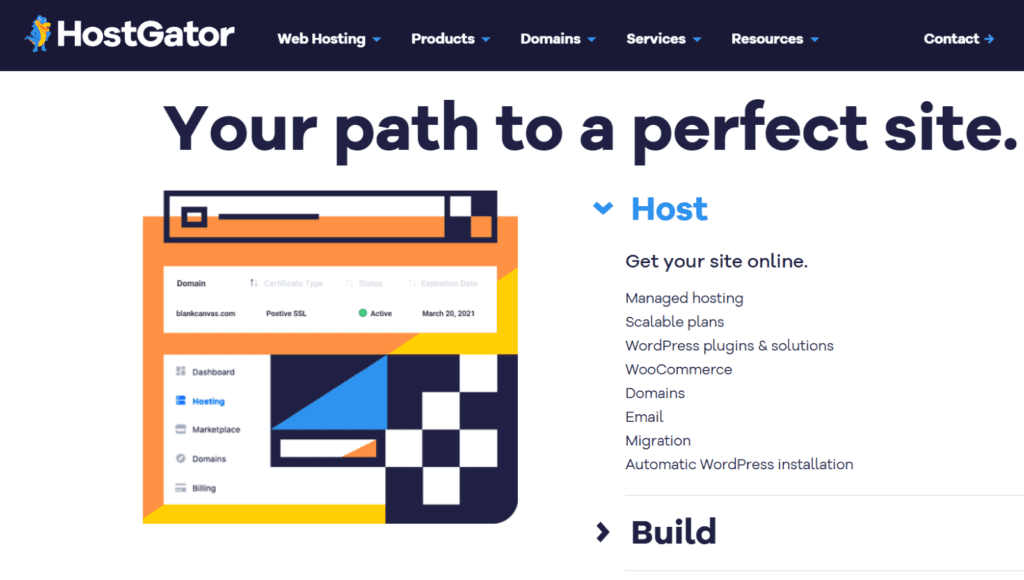
HostGator offers dedicated server hosting with optional SSD storage, aimed at users who need room to scale without a complex setup. HostGator plans include full root access, unmetered bandwidth and a user-friendly control panel—making it suitable for small to mid-sized businesses.
Starting price: $141.19/month
Key features:
- SSD-enabled dedicated hosting with unmetered bandwidth
- DDoS protection and IP-based firewall
- Easy cPanel setup and full root access
Pros:
- User-friendly control panel
- Solid uptime and security basics
- Flexible Linux/Windows options
Cons:
- SSD not standard — needs manual selection
- Support may lack technical depth
Best for:
HostGator is a practical choice for users moving beyond shared hosting and needing reliable server resources with minimal complexity.
Liquid Web
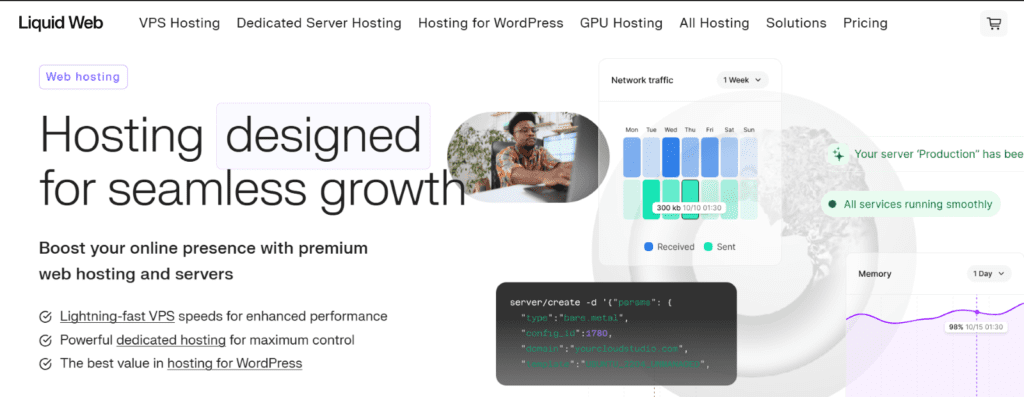
Liquid Web specializes in fully managed dedicated server hosting, built for high availability and enterprise-grade performance. Liquid Web plans include SSD storage, proactive monitoring and hands-on support—ideal for businesses running critical applications.
Starting price: $39.50/month
Key features:
- SSD storage with high-performance hardware
- Fully managed servers with real-time monitoring
- Includes DDoS protection, off-site backups and SLA-backed uptime
- 24/7 access to their “Heroic Support” team
Pros:
- Fully managed infrastructure
- Exceptional support (“Heroic Support”)
- Built for mission-critical apps
Cons:
- Higher starting costs
- May be excessive for smaller sites
Best for:
Liquid Web is best suited for teams that want strong technical support and stability without handling server maintenance directly.
Ultahost
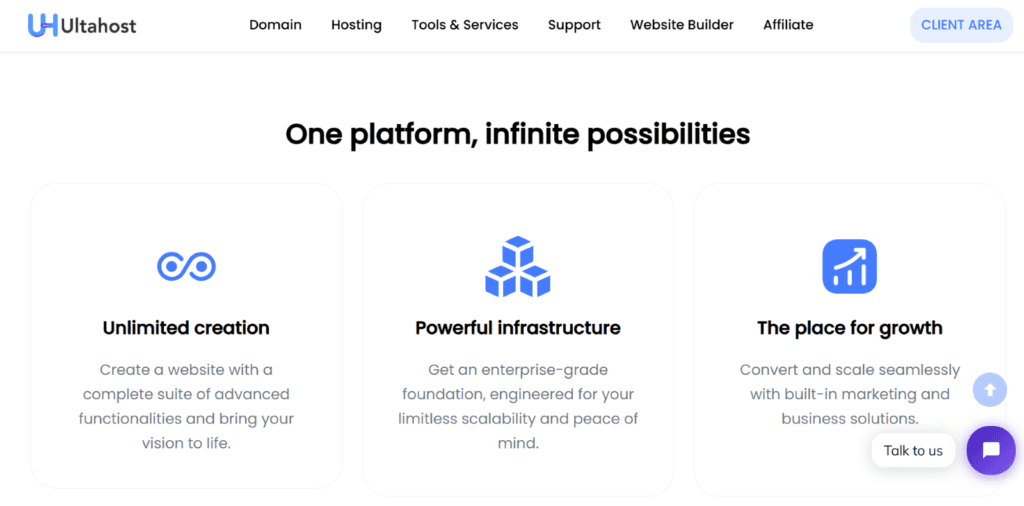
Ultahost offers budget-friendly dedicated server hosting with a focus on performance and scalability. Ultahost plans include NVMe SSD storage, full root access and free DDoS protection. They’re ideal for startups or small teams needing reliable speed at a lower cost.
Starting price: $74.83/month
Key features:
- NVMe SSDs for fast storage and improved responsiveness
- Free daily backups, firewall and SSL certificates
- Supports both Linux and Windows environments
- Affordable pricing with monthly billing flexibility
Pros:
- Fast storage at budget prices
- Refund-friendly and scalable
- Built-in DDoS protection
Cons:
- Fewer data center locations
- Limited phone support
Best for:
Ultahost is a solid entry-level option for users seeking fast storage dedicated servers without premium pricing.
InMotion Hosting
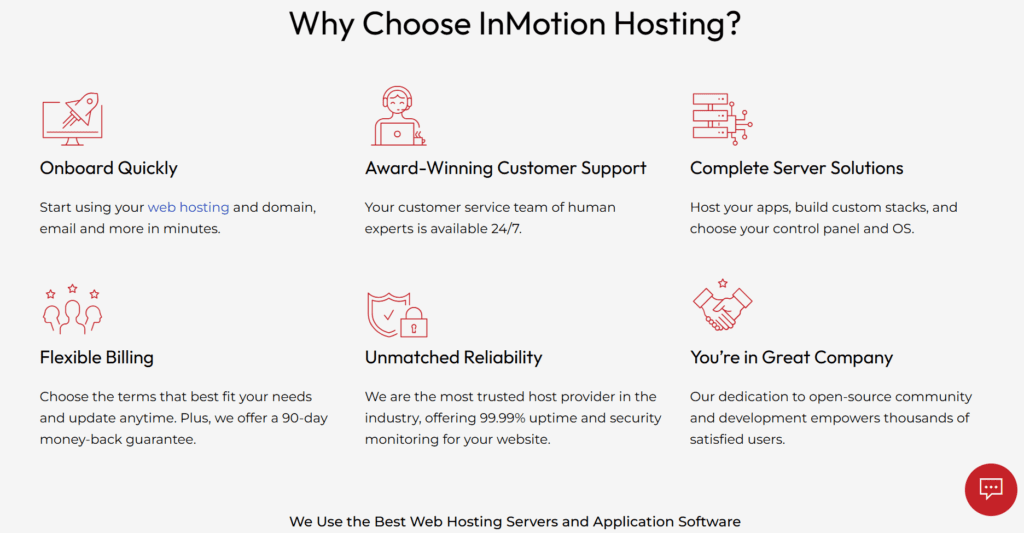
InMotion Hosting provides dedicated server hosting that combines performance with strong support. InMotion Hosting plans include SSD storage by default, optional NVMe upgrades and free server management tools, making them a dependable option for growing businesses.
Starting price: $35.00/month
Key features:
- Enterprise-grade SSDs with RAID configurations
- Optional NVMe SSD upgrades for better throughput
- Free website migration, server setup and backup tools
- Managed and unmanaged options with real-time monitoring
Pros:
- Enterprise hardware with RAID
- Real-time monitoring tools
- Strong US-based support
Cons:
- Limited international data centers
- Manual NVMe upgrade setup
Best for:
InMotion is ideal for users who need dependable performance and support without diving too deep into technical setup.
IONOS
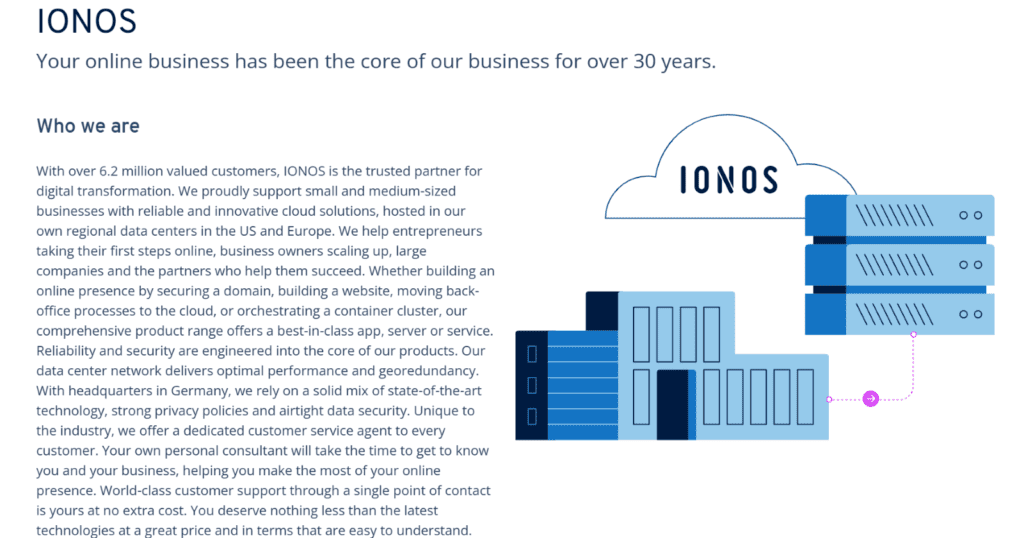
Ionos offers flexible dedicated server hosting with built-in SSD storage and full root access, tailored for developers and businesses needing custom environments. With Ionos users can choose from various hardware configurations and operating systems.
Starting price: $42/month
Key features:
- SSD-based servers with scalable RAM and storage
- Full root access and API support for advanced control
- Optional DDoS protection, firewall and backup add-ons
- Global data centers and 24/7 expert support
Pros:
- Custom configurations
- Affordable pricing with flexibility
- Global server locations
Cons:
- Interface can be less intuitive
- Add-ons increase total cost
Best for:
Ionos is a practical choice for tech-savvy users who want control, customization and straightforward pricing.
Kamatera
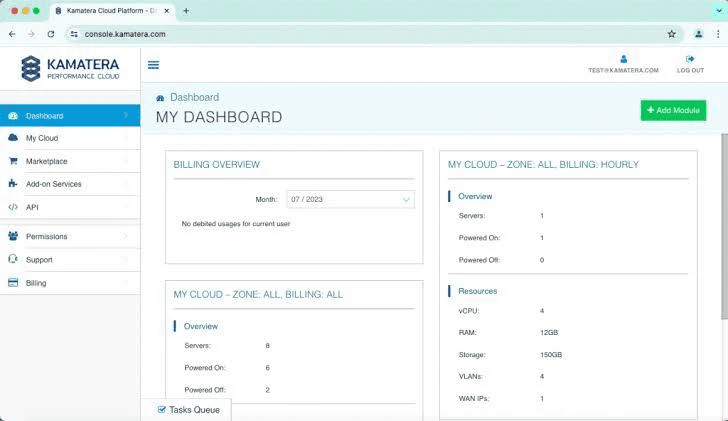
Kamatera offers cloud-based dedicated server hosting with SSD storage, allowing users to scale CPU, RAM and disk space in real time. Kamatera is designed for developers and teams needing rapid deployment and granular control.
Starting price: $23/month
Key features:
- Instant server provisioning with SSD storage
- Fully customizable plans with per-minute billing
- Global data center options for lower latency
- Supports both Linux and Windows servers
- 24/7 support and real-time resource scaling
Pros:
- Minute-level billing
- Instant provisioning
- Linux and Windows are supported
Cons:
- Requires technical setup
- Support tier depends on plan
Best for:
Kamatera is best for users building custom virtual servers or managing multiple environments with changing workload needs.
How to choose the best dedicated server with SSD?
Choosing the right dedicated server with SSD isn’t just about picking the cheapest plan or the one with the most storage. It’s about aligning your technical needs, performance goals and future growth with what the provider offers.
Here’s what to evaluate before you decide:
1. Understand your resource requirements
Start by estimating the CPU, RAM and disk space your website or application needs. If you’re running resource-heavy web applications, hosting multiple virtual servers or storing large databases, look for plans with higher RAM and NVMe SSD storage for faster data processing.
2. Prioritize speed with NVMe SSD and private network options
NVMe SSD hosting ensures low-latency performance. If your application demands fast data access and stability, also consider plans that offer a private network—ideal for secure internal communication between multiple servers or backend systems.
Also read: Introducing NVMe Hosting | Get Higher Speed on VPS & Dedicated Server Plans!
3. Look for full control and root access
A good, dedicated hosting solution should offer full root access, giving you total control over your operating system, custom configurations and server infrastructure. This is especially important if you plan to run a VPS platform or install specific software packages.
4. Make sure there’s a money back guarantee
A money back guarantee adds peace of mind during the initial setup. It allows you to test the server’s performance, support team responsiveness and usability before making a long-term commitment.
5. Choose hosting solutions that offer affordable prices
Look for hosting solutions that don’t just advertise speed but also deliver good value. Prioritize platforms offering affordable prices on high-performance setups, especially those with bundled features like unmetered bandwidth, dedicated IPs or free server migration tools.
Why choose Bluehost as your dedicated hosting provider?
We at Bluehost offer dedicated hosting that’s built for speed, power and complete administrative control—right out of the box.
Every plan comes with NVMe SSDs, AMD EPYC processors and DDR5 RAM, ensuring faster data access and smoother site performance. You also get unmetered bandwidth, three dedicated IPs and a 30-day money-back guarantee on every dedicated server plan.
Our hosting infrastructure supports fast-growing websites, data-heavy applications and virtual server environments with low-latency responsiveness.
Whether you’re planning to migrate from VPS hosting or need a more powerful solution, our NVMe SSD-powered dedicated plans offer unbeatable speed and reliability.
Here’s a quick look at the dedicated SSD hosting plans we offer:
| Plan name | CPU Cores | RAM | Storage | Starting price (36-month term) |
| Standard NVMe 32 | 8 | 32 GB DDR5 | 1000 GB NVMe SSD | $141.19/month |
| Enhanced NVMe 64 | 16 | 64 GB DDR5 | 2000 GB NVMe SSD | $217.19/month |
| Premium NVMe 128 | 24 | 128 GB DDR5 | 4000 GB NVMe SSD | $312.19/month |
All plans include:
- Unmetered bandwidth, 3 dedicated IP addresses and a 30-day money-back guarantee
- Full root access, a streamlined control panel and a free site migration tool
- 24/7 access to a knowledgeable support team to help with server setup, scaling or troubleshooting
- Built-in security features and uptime reliability optimized for demanding workloads.
Final thoughts
Speed, control and reliability are no longer optional—they’re essential for serious websites and growing businesses. If you’ve outgrown shared hosting or stretched the limits of a VPS, upgrading to a dedicated server with SSD can help you scale with confidence.
With faster load times, improved uptime and complete server control, SSD hosting gives you the performance edge your website deserves.
Get started with Bluehost dedicated hosting today—tap into NVMe SSD speed, enterprise-grade hardware and 24/7 expert support built for growth.
FAQs
A dedicated server with SSD is a web hosting solution where one customer gets full access to a physical server powered by solid-state drives. It offers faster load times, better reliability and more control than VPS hosting or shared environments. It’s especially beneficial for businesses managing storage servers or high-demand web applications.
SSDs improve server performance by enabling faster read/write speeds, lower latency and efficient multitasking—delivering better performance for your apps, services and virtual private server setups.
SSD uses SATA, while NVMe SSDs connect via PCIe for ultra-fast speeds and reduced latency. NVMe is ideal for storage servers, VPS platforms and workloads that demand instant access in just minutes.
Yes. SSDs have no moving parts, making them more durable and less prone to failure—especially in SSD VPS or high-performance web hosting environments where uptime is critical.
Anyone running high-traffic websites, large databases or custom apps should consider SSD hosting—especially if you’re outgrowing a VPS hosting plan and need a more scalable, high-performance solution. It’s great for users managing multiple sites or apps that require consistent RAM allocation and fast read/write cycles.
Absolutely. SSDs are widely used in dedicated servers, VPS hosting and storage servers to support faster performance, better RAM utilization and a smoother experience for end-users.
Not all servers use SSDs due to higher costs. However, for customers seeking the best pricing on speed and efficiency, SSDs offer long-term value—especially in performance-focused environments like VPS hosting and dedicated solutions.
Yes. NVMe delivers faster speeds and lower latency, making it ideal for virtual private server workloads, SSD VPS environments and modern hosting services that prioritize performance.
A dedicated SSD is a solid-state drive assigned exclusively to one virtual private server (VPS) or user environment, ensuring isolated, high-speed storage and consistent performance across all hosted services. It’s often included in high-end VPS hosting and enterprise solutions that demand maximum reliability.
Yes. SSD VPS hosting bridges the gap between shared and dedicated hosting, offering more control, faster speeds and scalable resources. It’s especially useful for websites with mid-level traffic that outgrow basic plans but don’t yet need full storage servers.
SSD VPS hosting offers isolated environments, scalable RAM and blazing-fast SSD storage. Startups and developers benefit from reliable performance, flexible configurations and a full range of tools without investing in full-scale dedicated storage servers.
Most providers offer monthly, yearly or multi-year billing cycles. Longer billing cycles usually unlock better discounts and lower rates.
Bluehost offers the best pricing on SSD dedicated servers when you choose a 36-month billing cycle. Plans start at $141.19/month.
Yes, all Bluehost dedicated plans include NVMe SSDs for faster I/O and ultra-low latency.
NVMe is faster and more efficient than SATA SSDs, making it ideal for high-performance hosting needs.
Yes. Faster page speeds supported by SSDs reduce bounce rates and boost rankings.
Yes. Bluehost and other providers offer seamless upgrades from VPS to SSD-powered dedicated hosting.
It may be, unless the site has heavy plugins, media usage or significant global traffic.


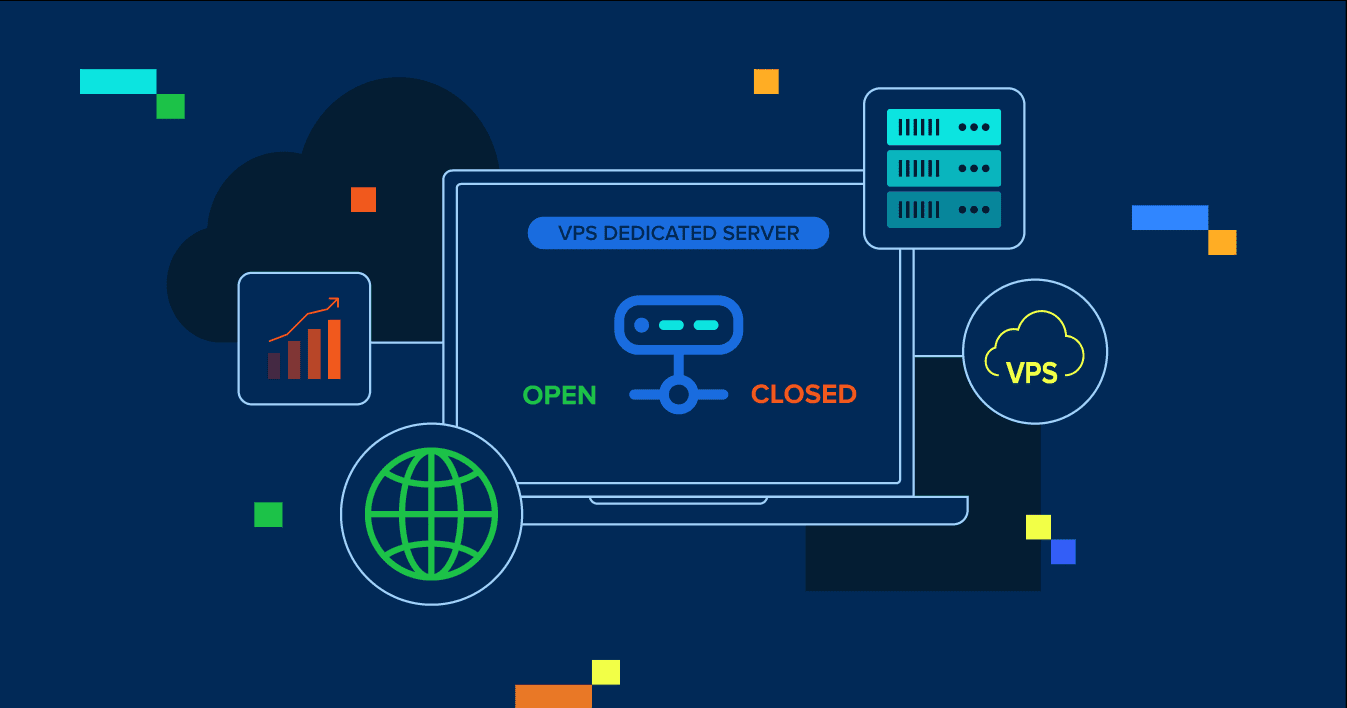
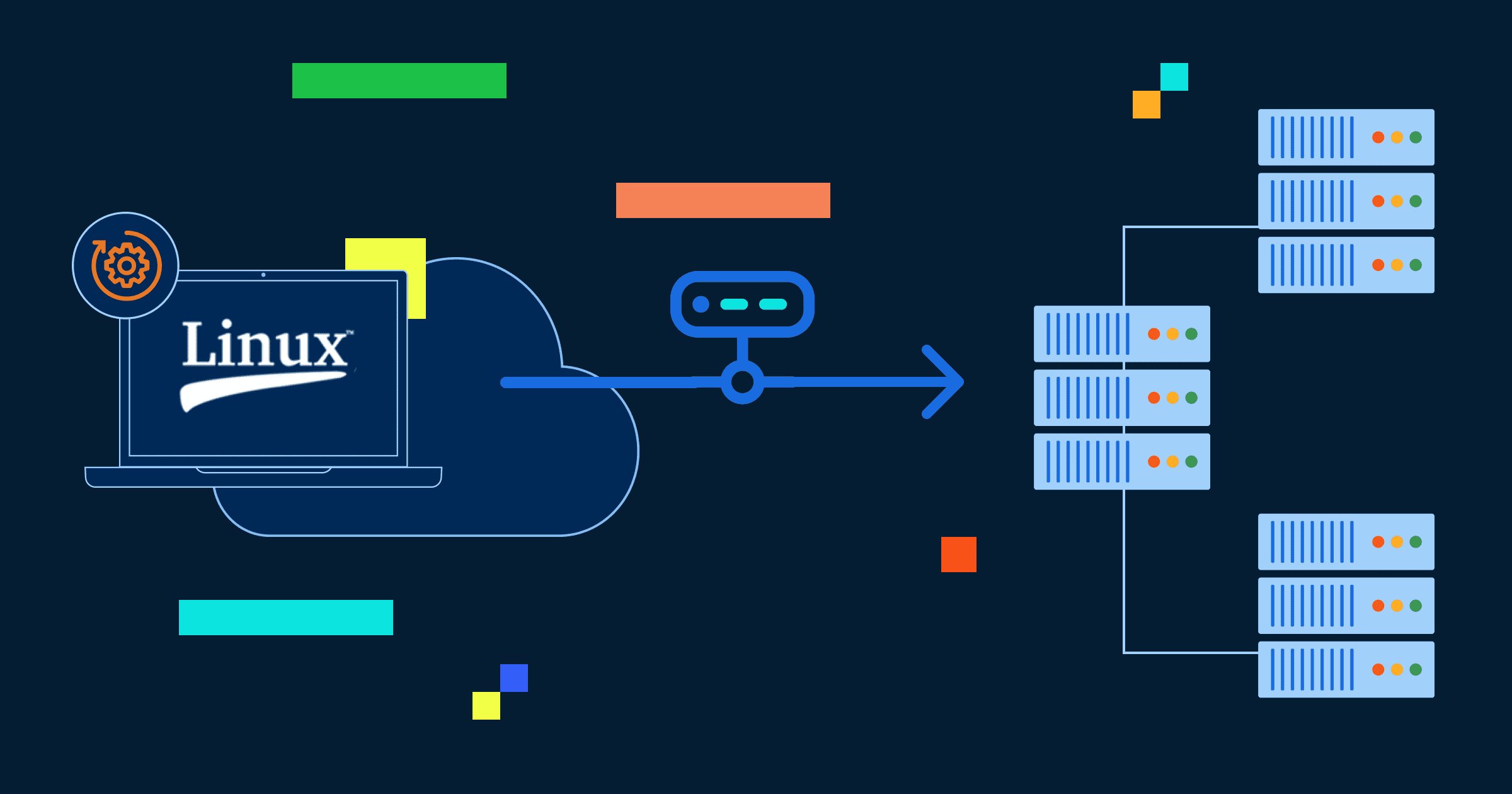
Write A Comment